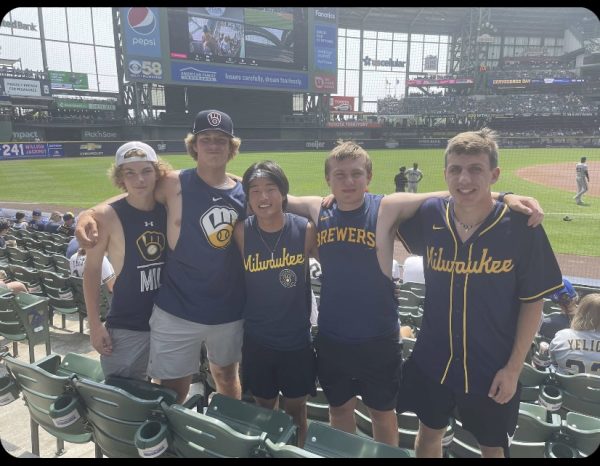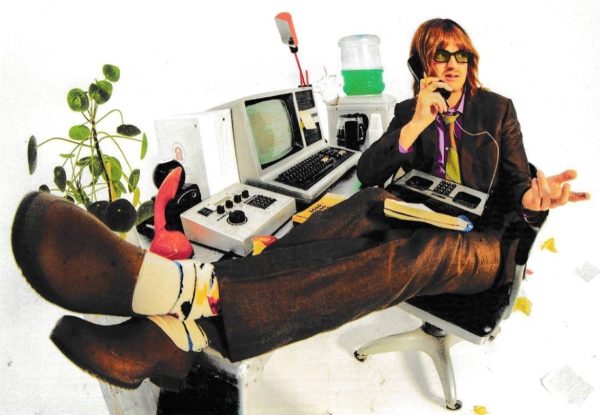The Art of Mud-slinging
A quick look at the inherently deceptive nature of election season politics
More stories from Gabriel Lagarde
When it comes to the art of mud-slinging, it’s not about how accurate you sling it, it’s about how hard.
This can be your kindly reminder that politicians lie and they lie a lot.
Entire books could be written about Donald Trump’s shameful record of warped statistics, half-truths and outright slander stretching back years before he joined the presidential race. In many ways, Trump has made lying—and not just lying, but absurd, inflammatory statements challenging the boundaries of public discourse—a regular and acceptable part of selecting the next leader of the free world.
However, let’s leave that aside for a moment and point the spotlight at another form of political gamesmanship: inflated rhetoric and empty promises.
As the Obama administration comes to a close, more and more discussions will revolve around his legacy and whether the departing president’s tenure lived up to the idealistic mandates set out by the young senator from Illinois back in 2008.
The Pulitzer Prize-winning analyst project PollitiFact has a long and detailed list of promises made by Obama in 2008 that were compiled and monitored by journalists. After a quick read, it’s clear Obama made a host of statements and promises that never came close to fruition. Simply put, there are too many to examine fairly in this article, and that is ignoring initiatives Obama introduced later when he was in office.
This shouldn’t be surprising. There are three angles that readily come to mind.
On one hand, there is no written rule that elected officials must follow through on the convictions they espoused as candidates. While support would vanish if he did so, there is no law that states a far-leaning left wing candidate like Bernie Sanders couldn’t turn face once he would be in office and start pushing for stricter abortion laws, cutting affirmative action programs and giving tax breaks to big business.
While obviously not this extreme, this phenomenon takes place to a certain extent with every presidency. Twilight Zone scenarios aside, realities change from year to year. What may have worked in 2008 might not work in 2016. Republicans and Democrats approach problems more similarly than they let on during the black and white, line-drawn-in-the-sand world of the election season.
Secondly, as powerful as the president is, there may not be a more overrated and unfairly judged job in America. No, a president can’t single-handedly revive the economy. Alone, they can’t tip the nation towards equality or send the western world into war with a shake of their fist. They don’t have a magic wand that fulfills their every wish and desire, for good or ill.
The office of the president may be an important piece of the machine, but it can’t carry out its plans without overcoming obstacles such as a hostile legislature, negative public opinion or the rule of law, all of which Obama has dealt with at one time or another during his presidency. These checks and balances are there for a reason.
And, lastly, it should be noted that empty promises and inflated rhetoric are simply part of the game, even those tame compared to Donald Trump.
Our 41st president, George H. W. Bush, famously made the gutsy slogan “Read my lips: no new taxes.” Bush Sr.’s presidency lived and died by that phrase. It galvanized voters to propel him into the highest office and, when he did indeed have to make new taxes, it was the most commonly cited reason for his failure to win a second term.
The best candidates do it. Any political hopeful—no matter how successful their record or how strong their platform is—takes a profound risk pushing a campaign that appears careful or realistic in its aspirations.
One has to look no further than Bush Sr.’s son Jeb Bush, a relatively moderate candidate with a well-reasoned platform and a resume as a Governor of Florida. Bush entered the 2016 election season as one of the frontrunners of a crowded GOP field. Bush was thoughtful, articulate, even gentle.
By the midway point, Bush was little more than an afterthought in the shadow of Trump, an outsider who attacked his candidacy through an escalating game of one-upmanship with himself.
Irrespective of his qualifications or views, it’s hard to deny that Trump presented himself as the more dynamic option and that’s the crux of the situation. Trump was ridiculous, he was obscene, but he was fearless, he was outspoken, he was louder and he was more decisive than his opponents.
Any concerns Trump’s stances were even coherent, let alone remotely possible, took a backseat to the circus he created. As a result, despite the predictions of the pundits, in the face of over two centuries of historical precedence, Donald Trump is now the Republican nominee.
The point is that Trump is an outlier, a particularly severe case, but every candidate engages in this arms race of words. While it may be articulated differently, and perhaps with more subtlety than Trump’s brand of hyperbole, the tactic is essentially the same: candidates will work to construct a false image of themselves that voters can believe in.
While it can be expected that Hillary Clinton or, if he does win a seat at the table, Libertarian Gary Johnson will not pander to the public in the volatile manner Trump will, it can also be expected that they will try to hide their flaws and flaunt their strengths. In an effort to sell themselves to the public, they will operate in inflated rhetoric to the point of delusion. They will make promises they know they can’t keep.
And so, to avoid a chronic case of heartbreak the next four years, a healthy dose of skepticism may be in order this election season.









